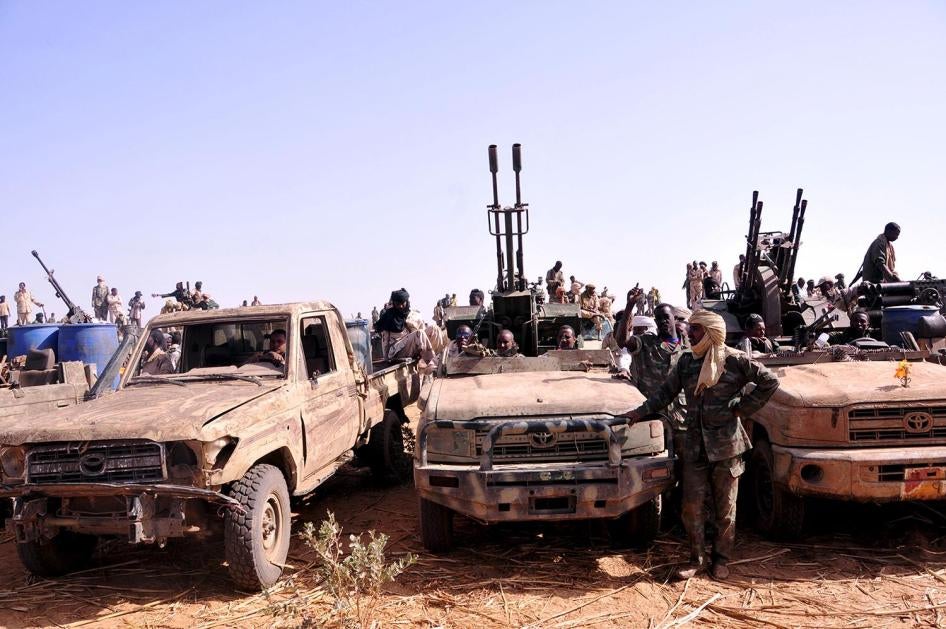US President Donald Trump has just postponed an Obama-era decision to permanently lift the US’s longstanding economic sanctions on Sudan. Shortly before he left office in January 2017, President Obama signed an executive order to temporarily lift economic sanctions and give Sudan six months to make “progress” in five key areas before lifting them permanently. Trump has decided to take three more months to review the evidence before making a final decision.
The five key signs of progress on Obama’s list were a reduction in military offensives, a pledge to stop fighting, better humanitarian aid access throughout Sudan, as well as cooperation with the United States on counterterrorism and addressing regional conflicts.
While Obama’s deal with Sudan didn’t explicitly mention human rights, Human Rights Watch and 53 Congressmen have argued the Trump administration should use a more expansive set of criteria for its decision and review Sudan’s human rights record too.
Sudan’s government may have showed some initial signs of progress along the lines Obama wanted, but this is unsustainable if Sudan maintains its abusive paramilitary forces, like the Rapid Support Forces and the National Intelligence and Security Service.
The government has extended a unilateral ceasefire and reduced indiscriminate bombing and shelling of civilian areas, but its armed forces still use scorched-earth tactics and in May burned seven villages in North Darfur and killed at least 10 civilians. And while Sudan nominally relaxed restrictions on aid groups, it still blocks their access to conflict-affected areas, restricts peacekeepers’ movements, and has yet to agree on how to get critical humanitarian aid to civilians in rebel-held Nuba Mountains and Blue Nile.
Meanwhile, authorities continue to detain human rights activists like Dr. Mudawi on trumped-up charges that carry the death penalty, violently break up student protests, and shut down events and local organizations. Authorities have also continued with threats to kick out South Sudanese refugees. In December, a British journalist and his American-Sudanese translator, who entered Darfur to investigate Amnesty International’s report that Sudanese security forces used chemical weapons against civilians in Jebel Marra, were detained for nearly two months and severely tortured with beatings, electric shocks, and mock executions.
While there may be an argument to lift broad economic sanctions on Sudan, human rights improvements are vital to any “progress” worth measuring. More specific goals should be adopted too, including ending attacks on civilians and indiscriminate bombing; sustained, unimpeded aid access to all conflict-affected areas; cooperation with the International Criminal Court; releasing arbitrarily held detainees; and ending torture and ill-treatment.
|
Dispatches
A Welcome Delay by US on Sudan Sanctions
Khartoum’s Rights Record Should also Face Scrutiny in Sanctions Review
Your tax deductible gift can help stop human rights violations and save lives around the world.
Region / Country
Most Viewed
-
June 24, 2022
Q&A: Access to Abortion is a Human Right

-
April 27, 2021
A Threshold Crossed

-
April 17, 2024
West Bank: Israel Responsible for Rising Settler Violence

-
June 21, 2017
“Just Let Us Be”

-
October 29, 2020
“I Sleep in My Own Deathbed”




